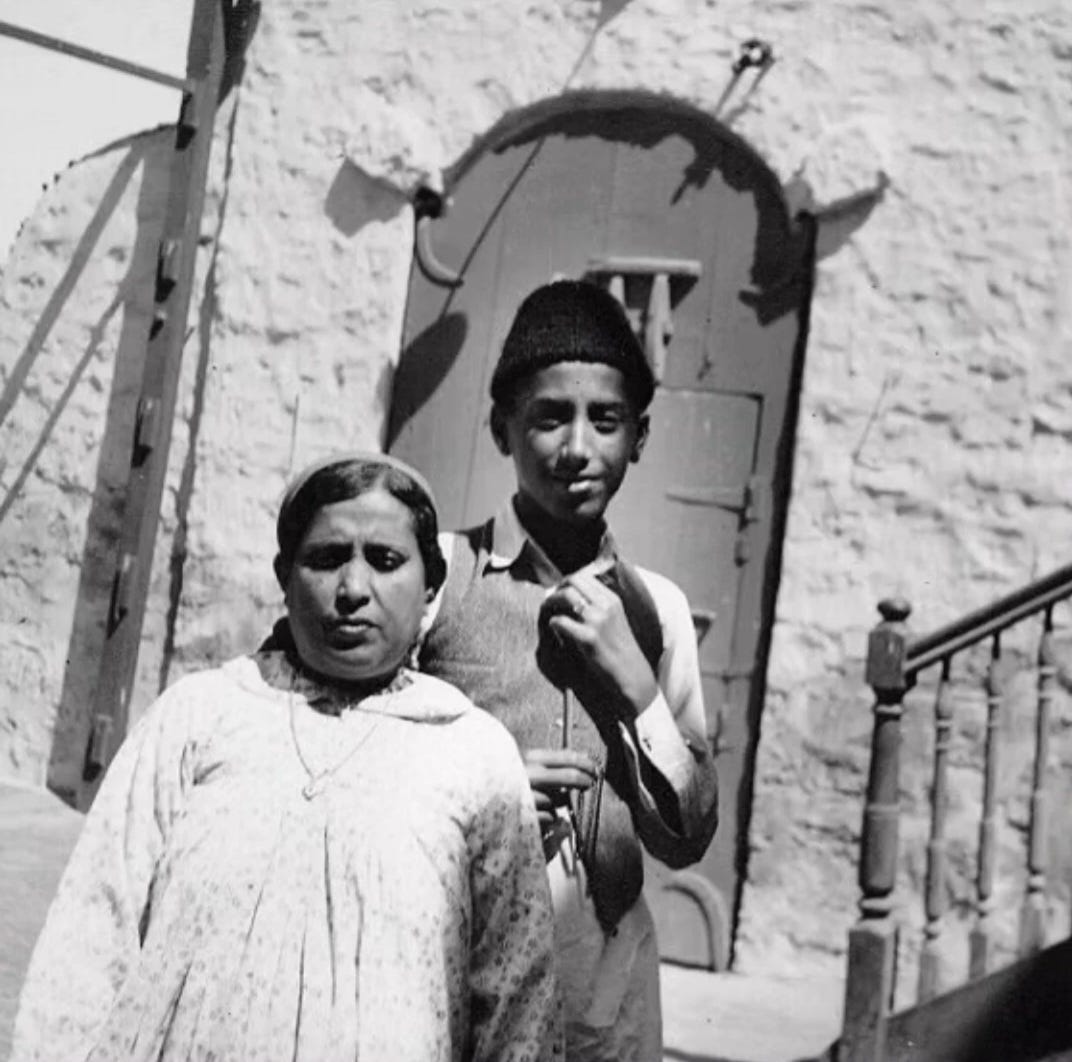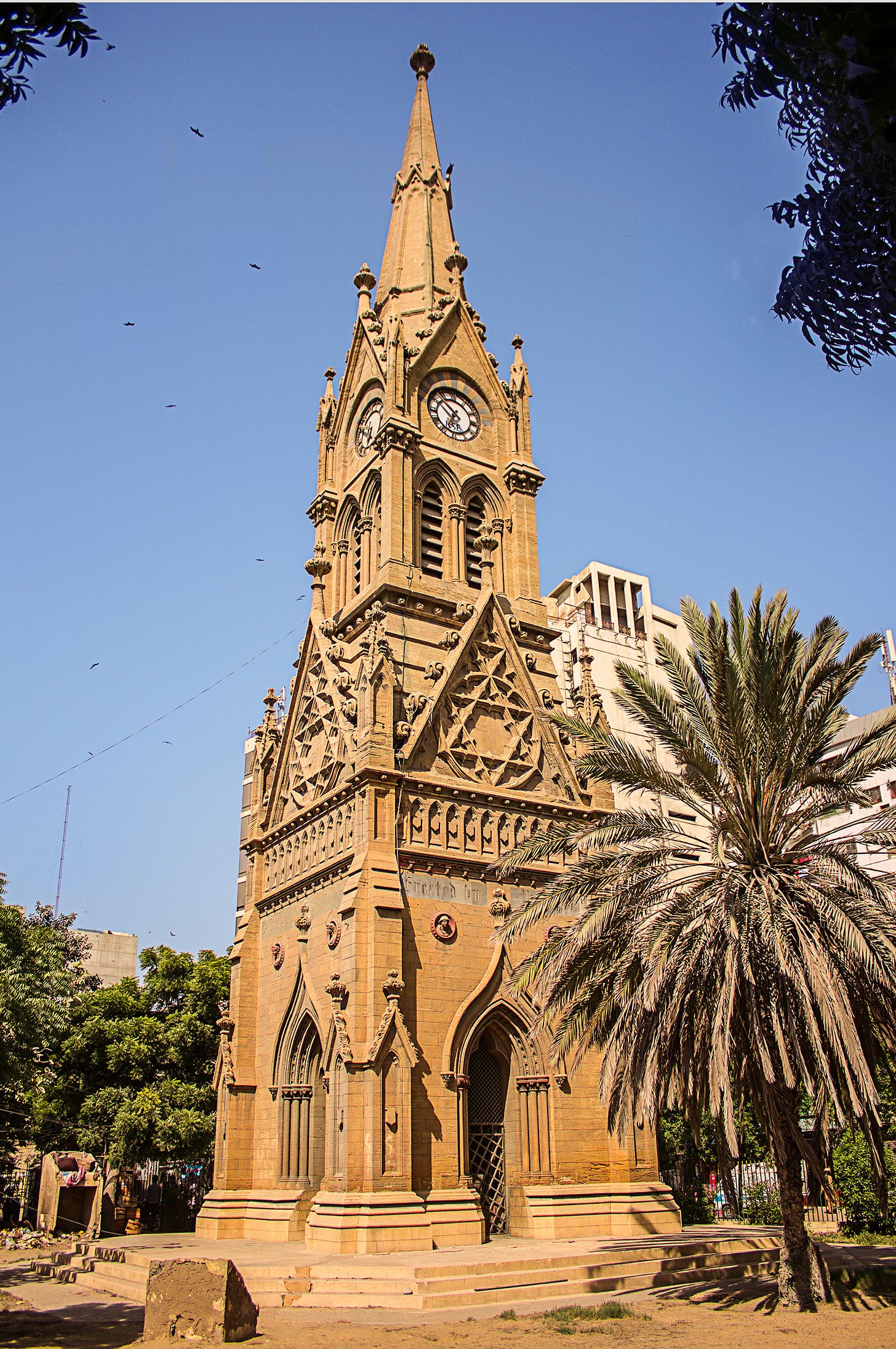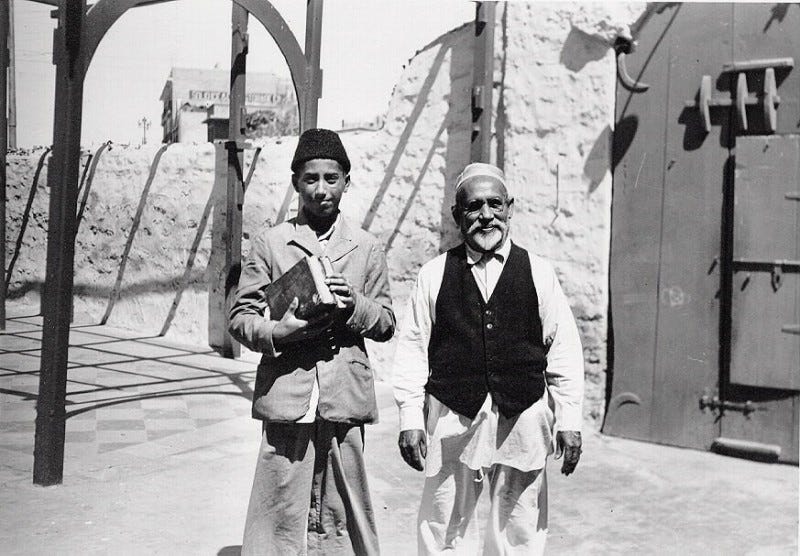Unveiling the Legacy of Karachi's Jewish History
Words by Sonia Gulzeb Abbasi
Welcome to the Brown History Newsletter. If you’re enjoying this labour of love, please do consider becoming a paid subscriber. Your contribution would help pay the writers and illustrators and support this weekly publication. If you like to submit a writing piece, please send me a pitch by email at brownhistory1947@gmail.com.
Don’t forget to check out our SHOP and our Podcast.

Unveiling the Legacy of Karachi's Jewish History
Two months ago, during my visit to Brno, Czech Republic, I attended a conference as one of the speakers. It was there that I had an interesting encounter with an Israeli Jew. Curiously enough, not only did we share the same panel, but coincidently, we found ourselves seated right beside each other at a lunch table.
To break the awkward silence, I initiated a conversation. A Jewish Israeli man and a Muslim Pakistani woman engaged in a conversation, an extraordinary juxtaposition that captured the gaze of many. Indeed a rare sight. As anthropologists we are trained to find similarities even within the most intricate of dynamics. I recounted and shared experience from my last winters’(2022) trip to Karachi, Pakistan, where I had come across a monument, the ‘Merewether Clock Tower,’ made of local Gizri sandstone, with engraved Star of David on the exterior. A neo-Gothic clock tower built during the Victorian era, and a landmark in central Karachi. This prompted me to delve deeper, uncovering a thriving Jewish presence in Karachi until the late 1930s, which was renowned even then as a multicultural and tolerant city. Our discussion took an intriguing turn, we discussed how popular narratives about perceived Jewish-Muslim antagonism (or similarity) are often a product of the same European discourses that have historically constructed both Jews and Muslims as the other. Our experiences of being colonized by Europeans provided a shared backdrop for our sense of otherness.
We found commonalities in our othering. Fair enough. It is worth mentioning that this conversation unfolded over lunch, a candid exchange held off the official record, while we both enjoyed a serving of vegan cuisine. I emphasize this detail to pre-empt any potential misinterpretation – my intent is not to normalize the Israeli state. During the panel discussion, I was quite vocal about my conviction that Israel stands as an apartheid state, and academic complicity in this context is deeply problematic.
Almost a decade ago, in 2011, Associated Press released a documentary titled ‘Karachi's forgotten Jewish community’. It showed video footage of a Jewish cemetery, near Mewa Shah, one of Karachi’s biggest and oldest graveyards. Mehrunnisa Bibi, a caretaker of the graveyard, narrated this in Urdu while talking about the whereabouts of Jewish community: "The last time they came was six months ago, put flowers on graves and left; they do live here in the neighbourhood of Gulshan, but they don't make themselves apparent. They told me not to tell anyone who they are, they go by the surname of Qureshi , they stay very quiet about their identity."
The 2.5 acre cemetery that belongs to the Jewish community finds itself enclosed by a deteriorated wall towering between 8 to 10 feet. Among the weathered tombstones, the cemetery boasts around 250 graves crafted from intricate white marble. These graves bear thoughtful messages, prayers, profiles, and dates inscribed in both Hebrew and English. If you take a careful look at the tombstones, you'll notice names like 'Eliezer Jacob Bhorapker' and 'Jacob Solomon Kamarlekar'. On various commemoration stones, one can clearly observe Marathi surnames distinguished by the unique addition of the 'kar' suffix. These family names provide insight into the ancestral background of the Malabar Jews or Cochin Jews. These people were the progeny of Sephardic Jews who settled along the Malabar Coast within the former Bombay presidency (Indian state of Maharashtra).





